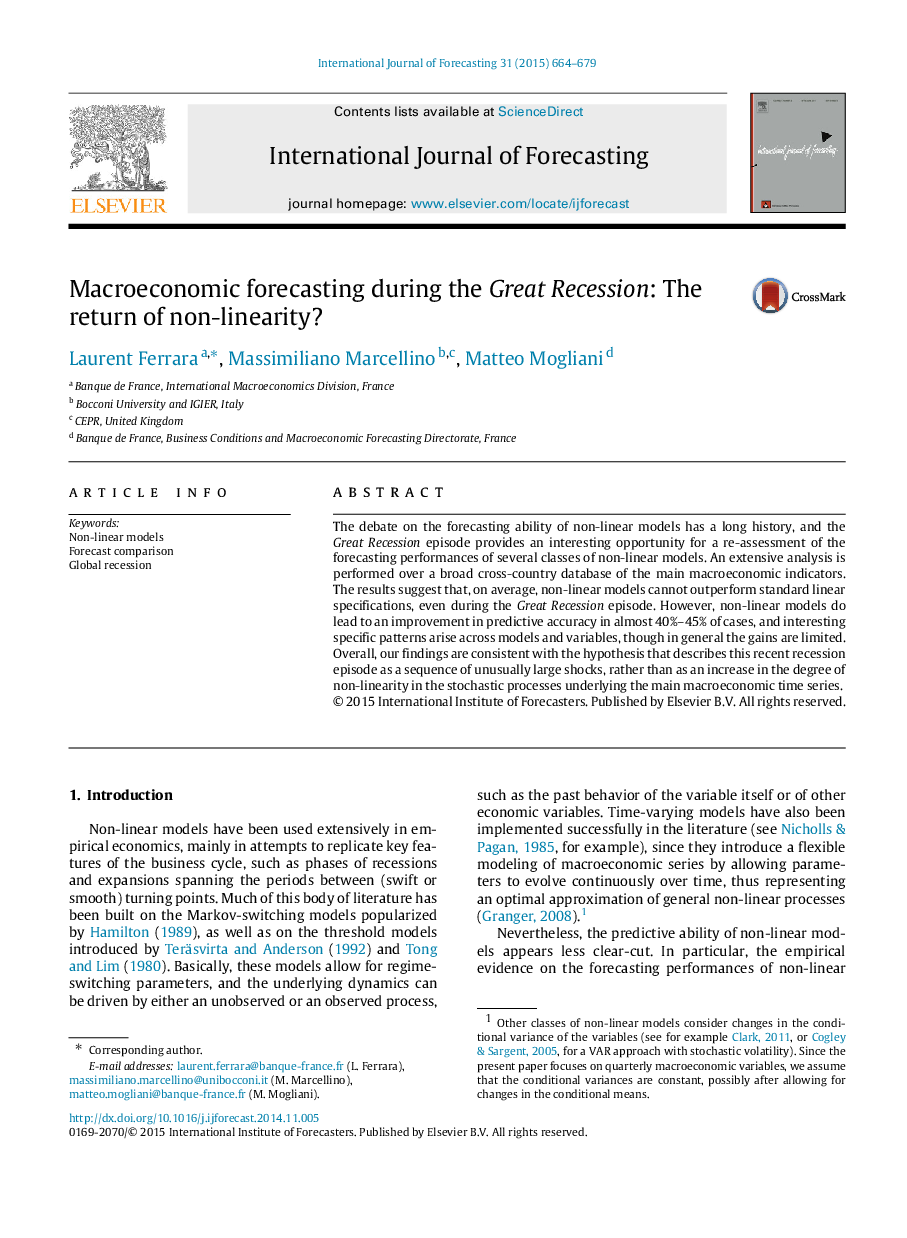| Article ID | Journal | Published Year | Pages | File Type |
|---|---|---|---|---|
| 7408360 | International Journal of Forecasting | 2015 | 16 Pages |
Abstract
The debate on the forecasting ability of non-linear models has a long history, and the Great Recession episode provides an interesting opportunity for a re-assessment of the forecasting performances of several classes of non-linear models. An extensive analysis is performed over a broad cross-country database of the main macroeconomic indicators. The results suggest that, on average, non-linear models cannot outperform standard linear specifications, even during the Great Recession episode. However, non-linear models do lead to an improvement in predictive accuracy in almost 40%–45% of cases, and interesting specific patterns arise across models and variables, though in general the gains are limited. Overall, our findings are consistent with the hypothesis that describes this recent recession episode as a sequence of unusually large shocks, rather than as an increase in the degree of non-linearity in the stochastic processes underlying the main macroeconomic time series.
Keywords
Related Topics
Social Sciences and Humanities
Business, Management and Accounting
Business and International Management
Authors
Laurent Ferrara, Massimiliano Marcellino, Matteo Mogliani,
